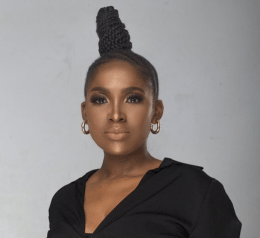4th Global
Women’s Empowerment & Leadership Summit
THEME: "Break Barriers, Build Futures"
 27-28 Oct 2025
27-28 Oct 2025  Bali, Indonesia
Bali, Indonesia THEME: "Break Barriers, Build Futures"
 27-28 Oct 2025
27-28 Oct 2025  Bali, Indonesia
Bali, Indonesia 
SABC, South Africa
Title: From Object to Architect: Reclaiming the Narrative of Women in Media
Mmatsheko Mosito is a highly accomplished radio and television broadcaster from South Africa, working for The South African Broadcasting Corporation. (SABC)
Renowned for her versatility and professionalism, Mmatsheko seamlessly balances entertainment and gravitas.
With over 17 years of experience in the media and entertainment industries, Mmatsheko’s success is rooted in her background as a broadcaster and cultural curator and agricultural communicator. Having honed her skills on radio and television where she regularly engages audiences with nuanced storytelling and thought-provoking discussions,
Mmatsheko brings a wealth of expertise and poise to live events. Her years of experience as a host, producer and interviewer give her a deep understanding of audience dynamics, event structure, and the art of creating meaningful connections.
Her ability to think on her feet, combined with her refined public speaking skills, allows her to adapt effortlessly to different event settings. Whether presiding over a high-profile awards ceremony, facilitating panel discussions, or engaging attendees at a conference, Mmatsheko’s presence elevates the occasion.
The traditional discourse on women and media often centres on imbalance — focusing on underrepresentation, stereotyping, and exclusion. While these are valid concerns, they tell only part of the story. In this presentation, I argue that women in media are not merely passive subjects of representation but active architects of new, liberating narratives. Drawing from my own journey as a South African broadcaster and media professional, I highlight how women in media are reclaiming power not only through visibility but through authorship, agenda-setting, and mentorship. This work is both reflective and practical, combining lived experience, qualitative data, and relevant media research to present a framework for transformation in how we see — and hear — women in media today.
Objectives:
Scope: This presentation focuses on women in broadcast and digital media, particularly in the African context, while drawing parallels with global trends. It includes perspectives from arts, business, and agriculture — industries where media visibility is influencing tangible outcomes for women.
Methods:
Results:
Conclusion: Women are not waiting to be better represented in media; they are actively rewriting the script. By owning the narrative, claiming space, and mentoring others into visibility, women are transforming media from a site of exclusion to a tool for empowerment. The future of inclusive media lies not just in the faces we see on screen, but in the voices that shape the agenda behind the scenes.